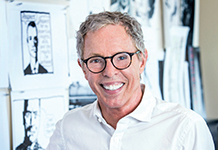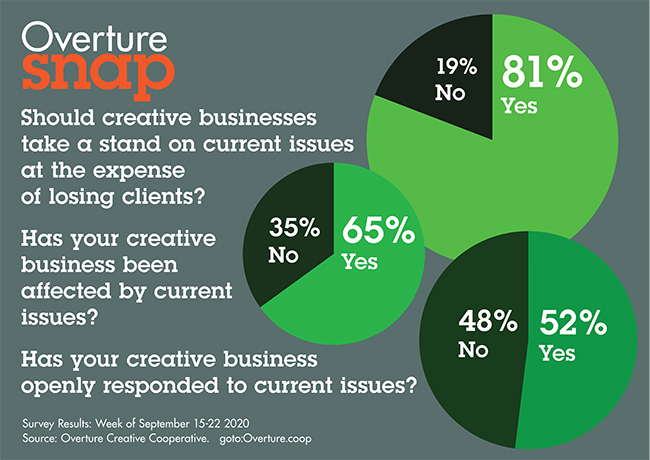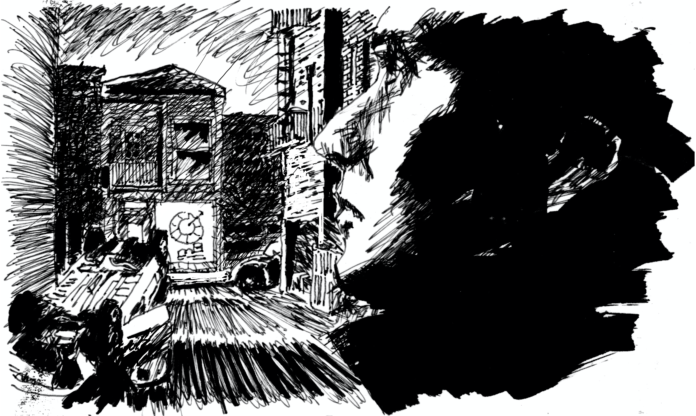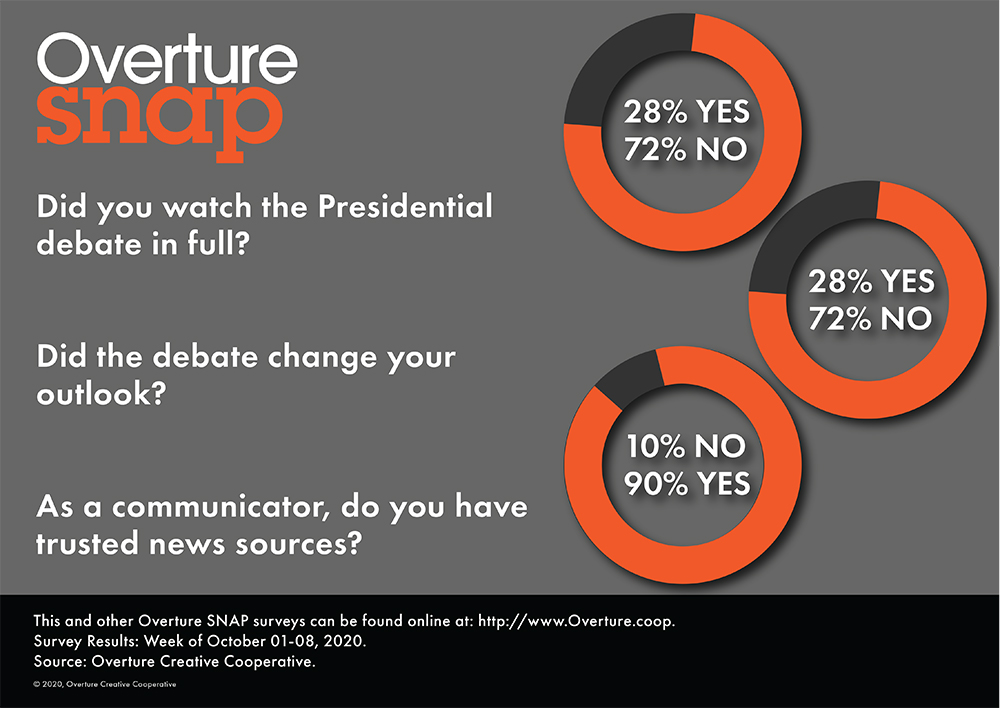By Ted Leonhardt
We’ll need a new model if we want to come out of this alive.
MI5 boss says Russian and Chinese threats to UK growing in severity.
The Guardian headline was the last of the news before I lost my connection. First the power had gone out, then both cellular and Wi-Fi went down “Maybe a walk will settle me,” I think. “Good to see how things look, now that it’s quiet.” It’s been one hell of a night.
I check the time. It’s just past three in the morning as I head out. It’s really dark.
One of my fondest memories from my days in creative offices was of seeing the pleasure teams got from working together on projects with shared goals. Arguing, comparing, competing and cooperating to achieve mutual success. People working together in harmony, as humans have done for 200,000 or 300,000 years, mostly as hunter-gatherers.
“So, yes,” I think as I walk, “we may be great at cooperating in small groups, but not so great in the larger societies we’ve got now.”
Hard-wired to cooperate
The need to care and be cared for is at least partially encoded in our genes and fundamental to building what evolutionary sociologist Nicholas Christakis has described as “a good society.”
Christakis claims that we are innately equipped as a species to band together, live cooperatively with each other, befriend each other, recognize uniqueness, show kindness, love and reciprocity in our relationships and learn socially while teaching what we know. (“Blueprint: The Evolutionary Origins of a Good Society,” Nicholas Christakis)
But clearly, I think, “Our hundreds of thousands of years of living in small bands didn’t prepare us for the level of cooperation we need now.”
It’s the economy that’s amiss
Here we are in a global pandemic. When I say global, I’m thinking that the pandemic unites us all. Every person on Earth faces sickness—and some of us—death. We’re in this together. Why don’t we behave like it?
Burned plastic in the air.
I check my watch. It’s half past three and “dark as the inside of a hat”—thinking it’s something Mom would have said—as I see the first of many burned-out cars.
It gets darker as I follow my usual course under the trees. My eyes slowly adjusting, I see store windows broken, cars overturned. I pass the remnants of a police van, and it crosses my mind that someone could have been inside. I shudder and check my phone. Still no service. Better turn it all the way off; no telling how long the power will be out.
Thinking about the pandemic makes me think of the first time we saw that beautiful photo of Earth from space. We could see that Earth was finite. A small round ball in the midst of very black space.
Here we are in the middle of an election—the most divided and contentious election in memory. Votes being counted and contested. A sitting president threatening military action. Black Lives Matter protests attacked by supremacists.
Can we share?
As I walk through the damage of last night’s carnage, I wonder if Earth has enough resources to sustain us all. Our “developed-world” lifestyle clearly in consuming on a scale massively beyond what is sustainable for the planet. I wonder, “Is that what this unrest is all about? Is it the fear that it’s not just the forests that are on fire? Is that why violence seems to just happen like this? Are people fighting to hang on to their little piece of the earth? Or are we fighting to maintain our unsustainable lifestyle?”
The pandemic lies on top of the politics, the growing wealth gap, the homeless on the streets, the social injustice, the forest fires and global warming, and all are driven by the need for endless economic growth. We’re all on edge.
“Is their enough for all?” I ask myselfm as my boots crunch through the glass on the streets from shattered windows and broken bottles. We’re running out of time, and leadership is failing us. Mostly fighting with each other over whether we have a problem— and, worse: maybe preparing for war.
We need a new world view. Still dark, just after four now. I turn a corner and see a store window with a light on.
I ask myself, as curiosity draws me toward the light: “Is there a way, a system, a method, another way for our economy to actually make it possible for us all to share equally in what the earth provides?”
It’s a bookstore window, lit with what must be a battery-powered emergency light, shining on a display of Kate Raworth’s book Doughnut Economics: Seven Ways to Think Like a 21st-Century Economist. Raworth is with Oxford University’s Environmental Change Institute.
In the window is a placard displaying the book cover and perhaps an answer to the dilemma we all face:
An Alternative to Growth Economics
Economic activity, Raworth says, should be “meeting the needs of all within the means of the planet.” We don’t need economies focused on growth alone. It’s killing the planet and us with it. We need economies that “make us thrive,” as the first priority. This means changing our picture of what the economy is and how it works.
Mainstream economics is most commonly demonstrated with a virtuous-cycle diagram. It’s an economic diagram that leaves out the virtues needed for our social and ecological reality. It charts a cycle of income flowing among home, business, banks, government and trade. It doesn’t include the social and ecological reality of life on Earth. Energy, materials, the natural world, human society and power are not accounted for.
Raworth has created a sustainable way to think about the economy. She uses a diagram in the form of a doughnut that represents a world view in which people and planet are fully represented. Hence her use of “doughnut” in the title of her book.
Relief from the discovery of Raworth’s book sweeps over me, as I shake myself awake from the nightmare. Relief that there are answers to our dilemma. I find that the power is on. The stereo is playing softly, and I realize I’ve dozed off on the couch with Doughnut Ecomonics open on my chest.
“You never change things by fighting the existing reality. To change something, build a new model that makes the existing model obsolete.” —R. Buckminster Fuller
 Note from Ted: Overture is running another short “Snap” survey. Three quick questions on how your work has changed given current events. Take the survey here: https://www.surveymonkey.com/r/29XZ9RS. My consulting practice is described on my site at tedleonhardt.com. You can reach me at: ted@tedleonhardt.com.
Note from Ted: Overture is running another short “Snap” survey. Three quick questions on how your work has changed given current events. Take the survey here: https://www.surveymonkey.com/r/29XZ9RS. My consulting practice is described on my site at tedleonhardt.com. You can reach me at: ted@tedleonhardt.com.
Snap Trust-Survey Stats
By Ted Leonhardt
Overture received 31 responses to the survey in total. The comments reflected the reprehensible quality of the debates themselves. They also show how baked in we are to our political positions. Respondents were very clear in how they described their thoughts and what they wrote is well worth reading.
This is Overture’s third Snap survey. The summaries of all our surveys can be found at http://www.overture.coop/uncategorized/the-overture-snap/
Did you watch the Presidential debate in full?
29% Yes, 71% no
29 comments
Why?
It was unbearable to witness the blatant rudeness of our Presidential candidates towards each other and the moderator. Turned it off midway to regain my composure and came back in for the end.
—-
It’s my duty as a citizen. And wanted to see Biden unscripted.
—-
I avoided watching all of it to preserve my sanity.
—-
Because I refuse to watch or listen to that idiot in office.
—-
curiosity…
—-
I think I was a bit in horror and disbelief that it would continue to be as awful as it was. I should have turned it off after 5 minutes. I think I was afraid I would miss some nugget of importance. Maybe I was hoping I would see some kind of reassurance that everything is going to go okay with this election. Instead, I continued to watch the toxic dumpster fire and collect more anxiety and fear about America falling apart.
—-
I felt it was important to know what’s being addressed (and how) by the future leaders of our country (despite the vitriol).
—-
Too painful. Like watching the most cringy episodes of The Office but it’s real life and that man “runs our country.”
—-
The commercials leading up to it reminded me too much of a reality or WWF showdown. I also knew Trump would and could not be respectful and I don’t need his negativity and nastiness encouraged or displayed.
—-
Couldn’t handle the disrespectful behavior of our Liar in Chief. I tried – got through about 60 min and then gave up in horror and drank a negroni.
—-
I was busy with work.
—-
Extremely boring, filled with propaganda. Cannot listen to any politician for long and especially cannot stand Trump.
—-
I got about halfway through. It was too painful to watch.
—-
Not going to waste my time that way
—-
I like to hear it for myself, rather than filtered through the HIGHLY skewed and biased new media commentators.
—-
Too disturbing
—-
I never watch them. They’re always biased… by a biased moderator and/or on a biased network. They aren’t persuasive—nothing comes out of them to change my mind.
—-
I had to go to bed – it was late on the east coast.
—-
I’m sick of it.
—–
Couldn’t stand Trump’s behavior and knew I would see all the important moments on the CNBC followup.
—–
Donald Trump makes me too angry. I DVR’d it and then didn’t watch that either. I am politically active in support of Biden as well as Lindsey Graham’s challenger, but I find I can do that without listening to the Grifter-in-Chief.
—–
Only watched the last 2/3’s of it — busy at the start of it.
—–
Politicians in both parties have lost the little contact they had with The People!
—-
Must see TV? I watched primarily to see how Biden would handle Trump. I think he did ok considering the totally off the rails fool he had to contend with.
—–
I didn’t think I would learn anything new.
—-
Conflicted with a board meeting and I will not vote for the current conman holding America hostage
—–
I felt I had to subject myself to seeing The Idiot (a visual I avoid) in order to be aware of how Biden did.
—–
Because President Trump is a horrible speaker and I am not interested in what he has to say at this point. I have zero trust in his abilities to lead our country.
—-
Watching it won’t change my vote, and I try to avoid hearing Donald Trump speak as much as possible.
Did it change your outlook?
32% yes, 68% no
16 comments
If so, how?
It did not change the way I will vote but I had more respect for Biden before the debate than after. I didn’t expect him to ‘take the bait’ from Trump and “go low” as the Obamas would say. I also hoped he would listen to the America that wants to ban fracking, wants universal healthcare, etc., instead of just giving us more of what we have. I had and have no respect for Trump whatsoever, either before or after the debate.
—-
I’ve become more concerned that Biden will not return the party to doing what Roosevelt did in the great depression. I’m of course going to vote for him.
—-
Apart from Trump, the debate confirmed to me that under any other circumstance Joe Biden would be a lackluster president.
—-
He’s still an idiot.
—-
It provided a sobering reality that Trump really is a blatant racist who will stop at nothing to continue to occupy the White House. I feel like I have a bit more of an apocalyptic outlook for the future of our country. Before the debate I had more hope that Biden would win, and that Trump would be a decent human and not fight against the results. My current outlook is that he is not planning to leave the White House without a show of force. I don’t trust Trump at all…I didn’t think it was possible to trust or respect him any less than I did before.
—-
It’s going to be a very tight race, possibly the tightest we’ve seen yet, but the debate only served to reinforce my opinions of the candidates.
—-
Another reason I didn’t watch. I know who I’m voting for and nothing can change that.
—-
It reinforced the culture we’re driving in the US to lack compromises and respect, and put the two parties against each other.
—-
Biden was more clear-headed than I expected him to be… and Trump interrupted more emotionally than I expected him to. Reflecting back, though, I think the biggest problem was the moderator who kept blocking Trump from explaining what Trump was bringing up. Biden had an easy time of it compared to Trump, due to the moderator’s handling of the moments of conflict.
—–
More fearful and determined to support democratic principles and processes
—–
When he goes low, he finds a way to go even lower. I should really stop being surprised, but I keep being surprised.
—-
Even less respect for Trump, if that’s possible, and greater respect for Biden. I was not undecided going into the debate, but I’m more decided as an outcome of it.
—–
Dislike the current president more
—–
Solidified my visceral hate for Trump.
—-
I am an ‘anyone but Trump’ supporter. I knew I was going to vote as a Dem from the day after he won in 2016
—–
The parts that I did hear via reporting made me feel even more worried about the future of democracy. I was embarrassed by how undignified and irresponsible the person holding our highest office behaved.
As a communicator do you have a trusted news source?
90% yes, 10% no
29 comments
Most frequent sources: New York Times (14) NPR (10) Washington Post (10) CNN (8), BBC (7), Guardian (7), Atlantic (4), MSNBC (3) Associated press (3)
If so, what are they?
Perhaps. I hope they are trustworthy although sometimes I wonder. I do trust NPR. I capture headlines from New York Times, Washington Post, The Atlantic, The New Yorker, The Nation, The Guardian to stay up to date. I also appreciate the work that Yes! Magazine does. I read as much of them as I can but there isn’t enough time in a day. It barely covers the surface. I do trust Gabe Fleisher, Robert Reich and Judd Legum to capture, filter, and relay political news.
—-
The Guardian, the World Socialist Website, Ralph Nader, The Intercept, The New York Times, Washington Post, Grist/The Daily
—-
BBC, Washington Post, Al Jazeera, The Guardian, NYT, Reuters, AFP, PA, Sydney Morning Herald, Hindustan Times, WION, Irish Times, DW, Caspian Report.
—-
The New York Times
—–
BBC, MSNBC, New York Times, The Times UK, The Guardian UK,
—-
The Washington Post, The Atlantic, The Tacoma News Tribune, NPR, C-Span, BBC, The Guardian, and Twitter research (I try to find different activists & investigative journalists that curate/write quality content)
—-
Public Radio
—-
NPR, BBC, KUOW
—-
The New York Times, Seattle Times, LA Times, Heather Cox Richardson/Letters from a Concerned American.
—–
CNN. I trust what they say.
—–
Local news. Any other news source I double check facts before I commit to anything.
—–
The Atlantic, The Verge and CNN
—-
The media as a whole are looking for headlines, not the truth.
—–
CNN, MSNBC,ABC, NBC, CBS, New York Times, Washington Post, Seattle Times, Everett Herald, KOMO-TV, KING-TV, KIRO-TV
—–
NeedToKnow news, OneAmerica news, Breitbart, Ben Shapiro, Rush Limbaugh, Laura Ingram. I also listen sometimes to CNN to make sure I’m balanced — but often they show bias and anger which makes them lose credibility to me.
—–
Various
—–
Do your own research and open your mind! Use a trusted browser—NOT Google (Duck Duck Go or Ecosia). You might not like what you find. Follow critical thinkers who have nothing to gain from what they find/relay and ones that don’t work for a corporation with special interests or have a history of censorship.
—–
I trust NPR, VOX, NTY, Washington Post but I also recognize that the first two tend to be more neutral in delivering and not interpreting the facts while the last two go hard at Trump.
—-
Krystal & Saagar
—-
New York Times, Washington Post, MSNBC, CNN
—-
I sample from a variety of news sources and even look at the dark side’s sources from time to time. Sadly, our local paper changed hands and went over to the dark side. The most time-consuming thing I do is put a lot of data into spreadsheets so I can deduce things that are not really covered clearly in the media. Even the good news sources are very bad at math, and in particular, very bad at providing data in a consistent form so comparisons can be made. News sources: Washington Post The Guardian The New York Times Mother Jones Bloomberg News CNN Pro-Publica Mother Jones Statista BBC News Wall Street Journal Other: Pittsburgh Post-Gazette Fox News The Blaze Breitbart The Wall Street Journal.
—–
Axios, NPR and Reuters for center perspective. NYT News, The Atlantic and The Guardian for somewhat left perspective. WSJ and National Review for right perspective.
—–
Media (dictionary) “The media play an important role in society as a source of information, but also as a “watchdog” or scrutinizer. … However, the media is free to select the stories they consider important or interesting. Therefore, the media is often perceived as an influencer of public opinion.” There’s no REPORTING anymore, just “Influencing Opinions”. This from “REPORTERS” never far from their computer, certainly NEVER ON THE (OMG!) STREET!
—–
BBC, NPR, NYT, Washington Post, etc., and if I want to get riled up CNN:)
—–
PBS, CNN, Newsy, The New York Times, MSNBC
—-
CNBC NPR. New York Times
—-
Probably trust The Washington Post and the Associated Press the most, but read a variety.
—–
NPR and NBC.
—-
NPR, AP, and the BBC.
Ted Says . . . Trust
By Ted Leonhardt
 I used to put absolute trust in the future.
I used to put absolute trust in the future.
Now the future doesn’t look good. It’s murky. Uncertain. Smoky skies and uncomfortable politics. Protests. Marches in the streets. Militarized police. Homeless in the thousands. Sickness, death and unemployment await the unlucky, the old and the infirm.
Zoom go our days, if—and only if—we’re lucky enough to have work we can do from home. If not, we’re out of work or forced to work as “essential workers” in dangerous conditions.
A shining light on the Supreme Court dies, to be replaced by a seemingly fictional figure from The Handmaid’s Tale. A presidential debate dominated by a presidential bully who puts the Proud Boys on standby, while telling us to rake the leaves in our flaming forests. A personal pandemic master spreader, spewing hate and disease simultaneously.
Here we are with more opportunity for the many than ever before, and yet we can’t manage our affairs well enough to take care of what we’ve created. Those with the capital and the property were able to increase their already-inequitable wealth because of the contributions of all of us. We, all of us, built the schools, the roads and the great supporting infrastructure, and we provide the thousands of smart, educated people who made the wealth for the few possible.
And how do those with the wealth repay us? By not paying the taxes required to maintain and advance the community interest. By moving away when asked to pay to pay their fair share. By hiring private security to threaten and harrass the homeless they themselves put on the streets.
The only allegiance they seem to have is to growth and profit.
This is Seattle? This is America? I guess it is.
I don’t know what or who to trust. I was feeling more optimistic before Ruth Bader Ginsburg died and the presidential debate was held. I thought there was a better chance our world would begin to move toward helping and caring and away from helping only the privileged few.
Note from Ted: Please ake our Overture Snap survey on trust. Three quick questions for creative professionals. Please add your thoughts on why you feel the way you do. And maybe together, we creatives can begin to figure out what to do regain our trust in the future. My consulting practice is described on my site at tedleonhardt.com. You can reach me at ted@tedleonhardt.com.
 Results from the Overture Snap survey
Results from the Overture Snap survey
Following are all the verbatims collected through the survey. Thirty-one people responded, and many left comments. Thanks to all who participated.
Note to readers: When I was actively managing creative businesses, my own and others, I never commented on or involved political, social or environmental issues in our outbound messaging. I was afraid that I’d lose business if I spoke out on the issues of the day.
Although I had personal opinions, they were not passionately held. Today, I’m deeply concerned for our future and feel compelled to speak out.
On the surface, my income may not be as directly threatened as it was earlier in my career, so it may appear that it’s easier for me to feel safe expressing my opinions. But as I review the survey comments and think about what’s going on in the world, I feel that we’re all in peril. And I’ve come to believe the biggest risk is in doing nothing. Without significant change we are all at risk. —Ted Leonhardt
Should creative businesses take a stand on current issues at the expense of losing business?
BLM is an issue worth stand up for even if it costs you a client or two. Those [lost clients] wouldn’t be clients worth having. The creative industry has an obligation to hire and teach diverse groups of people. After all, we’re just a reflection of the consumers we’re trying to reach, and we should represent every possible shade of skin on the planet.
—————
Don’t do work that doesn’t align with your values.
—————
Donate time, resources. Find empathetic clients to work with.
—————
I would say definitely maybe. Clients should ideally align with the values of your business. But not everyone has that enviable position.
—————
[The] rhetoric is all-ready inflamed and doing everyone’s head in.
—————
This is a qualified yes, as I think when the creative business is so closely tied to current issue beliefs that you can’t separate the business from its ideology, then go for it. Assuming no one working for the business would be harmed economically by loss of business. I’m thinking by taking a stand you mean making it political. If you just want to express compassion for those hurting, as in BLM, yes always.
—————
I think it depends on the type of business and what you’re offering and how large/small the business is.
—————
But only if it is relevant. It is more meaningful for your company to be visible in ways like hiring people of color or taking care to dialogue with communities. If you issue a statement supporting black lives matter but one of your creative clients is a police department, your statement is meaningless.
—————
That depends on several factors. Are you in a financial position to do that? I built my business to be able to work with companies that align with my values. But I don’t do politics with friends on social platforms, I’m certainly not sharing it on LinkedIn. That said, I share articles for causes I care deeply about and try and effect change.
—————
Rather not lose clients (not that many to start with). But silence is no longer an option. We must engage and provide resources to protect what we’ve worked for – for so long.
—————
I question why anyone should impose some sort of rule over what an independent creative business should or should not do. The owner of the business is free to do whatever she wants. If she takes a stand on current issues in Seattle, chances are she will gain clients who see things similarly to her. I think that’s going to be generally true no matter which side of an issue you are on.
—————
Live your values and be true to yourself. Not always the easy road but I sleep better at night.
—————
Only if it’s a shitty client or if it can lead to a bigger or better client. An agency is a for-profit entity.
—————
If one uses sensitive storytelling, one can support businesses to align themselves with relevant/current issues. Then one can connect a thread to their own business. By relating empathically with customers experiencing these issues [you will] not loose clients but gain respect for trying to help and support.
—————
I’d say Ethics has long been claimed as a tenet of the design/art world, though no doubt there are many unscrupulous actors out there. Businesses of any size, in my opinion, should conduct themselves just as individuals do — because they are comprised of individuals this can’t be separated. So: pro bono work for good causes or designing to make a political / social / etc. statement (t-shirts, posters, murals, etc.), are a couple of examples that are in the wheelhouses of creative businesses. Aided by better-than-average empathy and strong communication skills, creatives are well suited to agitate for change, stimulate minds and spread ideas. All easier said than done when you’ve got bills to pay and aren’t sure where to begin.
—————
Alignment with anti-racism on social media and email marketing.
—————
“Current issues” is a little vague Politics? Hunger? Affordable Housing? BLM? War? Famine? Climate change? Health care? Violence? Hate? Education? Small businesses? COVID? International travel? Airline safety? WE could brainstorm a pretty big list. Maybe it is time for a new Seattle Design Community Manifesto. I would be more than willing to help with some of this.
—————
Transparency is wise.
—————
I turned down a client who was working to raise $ for the NRA just a couple of weeks ago. The pitch to me was “this relationship will lead to opportunities down the road with less odious clients.” It was tough to write the rejection note, not because I would have liked to help those villains, but because I enjoy working with the guy who brought the opportunity. Turns out he had to do the work himself as no one else would take it.
—————
We should use our skills to make people aware of the issues that are hurting people.
—————
Rejecting apathy as a viable mode.
—————
By bolding stating when a client’s stance or actions is detrimental to society. By offering suggestions to a course of action not merely to rectify but to improve. To adhere to those same principles without your business.
—————
Incorporate into copy.
—————
Speaking up and showing up. Offer communications solutions to improve the lives of everyone.
—————
Has your creative business been affected by current issues?
The current administration hasn’t handled the Covid-19 pandemic well at all – causing more deaths and creating an extremely unsafe situation in our nation. My jobs haven’t returned. Businesses may be pretending to normalize this new normal, but revenue and customers haven’t returned.
—————
Everything has been slower!
—————
Business nearly dried up. Very little activity, mostly short-term work.
—————
Only my personal life has been affected
—————
Early in the pandemic [the] meetings I was creating promotions for were postponed, then cancelled and I lost that business. Later in person events became online ones so I still had the work, but it was less extensive than it would have been. If you mean BLM, no impact.
—————
I’ve lost half my business because of covid because events aren’t happening.
—————
Not in business.
—————
Pandemic dropped a bomb on lots of sectors, I work with nonprofits mostly. Half of my projects got cut in half or put on hold. Colleagues on staff at large NP’s were let go back in June and July. Whole development departments. With one non-senior person left standing in as marketing and development.
—————
The number of projects reduced by at least half.
—————
I tend to get work from people who generally see the world in a similar way as I do. I see it as natural. Creative services are usually in the realm of emotions… and it really helps if the client and vendor like each other on a personal level. I don’t really feel at all like pursuing work from people who are on the opposite side of an issue from me. I want to understand them, but I don’t really want to work for them.
—————
I am/was in the live-event business, it shut down hard and will be one of the last to come back.
—————
Clients have not been willing to pivot and possibly even disrupt their industry/business, so remain in status quo and as yet not progressing with work.
————
Fear of the unknown.
—————
Asked to help clients create messages for their businesses.
—————
As a white male, I’m watching a lot of talented folks from traditionally minimized groups get getting hired at an encouraging rate. All I see is benefit. Everyone’s filling a niche. I may be vain, but I don’t feel any threat from it. And if income is any indication, I’m not losing out too much (knock wood).
—————
I’ve had several new clients sign up for help with business issues that are a direct result of the impact of the pandemic on their businesses.
—————
Loss of business from pandemic.
—————
I’ve been hired to create communication by a political party I disagree with as a whole. But they have a subset of members trying their best to create positive change within their party.
—————
Lots of feedback in that regard.
—————
Clients slow to make decisions, if they make decisions at all. Generally, a lack of courage everywhere I look.
—————
Has your creative business openly responded to current issues?
My creative business is my creativity since I’m a creative consultant, so my creativity has responded by donating my sweat, and skills to helping small business survive. I’m helping build a virtual agency, The Art of Good [is made up of] creative professionals who work pro-bono for small businesses in this time of need. For most of these small businesses, The Art of Good is a godsend. We have helped many stay afloat and are in the process of helping black and brown business hang on too.
—————
We’re looking specifically to hire to address inequities in the marketplace.
—————
Not as much as we could, but we’ve contributed to causes that support “people” not agendas.
—————
Supporting posts about Black lives matter. Hiring talented people of color. Promoting awareness of issues.
—————
I was excited about taking a stand at the recent webinar, but later thought if it isn’t relevant to the job, meaning I’m not asked to do something against my beliefs, there is no reason to get into this.
—————
I’m only one person and many of my clients are also friends so as much as I want to speak out, I don’t feel free to do so without compromising my income further.
—————
Not in business.
Not politically, but I have been talking about wellness and mental health more in my monthly newsletter. Not addressing the other topics.
—————
We haven’t been as active as we’d like to be. Partly because of shutdown, partly because clients don’t want to raise their voices.
—————
I personally have been active in voicing my opinions – but I’ve done it as a representative of my own self, not directing my communications toward clients. Sometimes I get in discussions with clients, but because we agree, there’s not much “taking a stand” going on.
—————
Reshuffling to get clients to do video streaming.
—————
Have been supporting SMB on a pro bono basis, to support them, as they have lost funding being local arts cultural establishments.
—————
An #openforbusiness + image post on LinkedIn (self-serving so maybe not a great example). Wish I could say more here, seems like there’s so [much] more that can be done.
—————
Not well. We are a profession of privilege. In reality, a lot of what we do is not even necessary for a society to thrive, nurture, and grow. We really might need to reverse this global economy and get back to support local, build relationships and friendships based on trust and a common goal.
—————
We don’t feel like adding to the noise right now.
—————
I don’t produce many marketing materials for myself, so I have not. But I have created a lot of messaging for clients that does. (Thanks for this! I enjoyed taking it. Overture is a great idea. Hope it’s taking off.)
—————
Mostly COVID-related, realizing the retail marketplace has changed forever.
—————
I’ve let my feelings be known through social. LinkedIn, FB, Twitter, Pinterest and Instagram. I’ve also posted on my blog and written for MarketingNW on current issues.
—————
I try to promote my business as objective, but I’m having to reconsider impartiality as being viewed as obstructive.
—————
By posting articles about the issues.
—————
Offering free and very low-cost solutions. New campaigning approaches, participating in as many active displays as possible.
 Ted’s consulting practice is described on his site at tedleonhardt.com. You can reach him at: ted@tedleonhardt.com.
Ted’s consulting practice is described on his site at tedleonhardt.com. You can reach him at: ted@tedleonhardt.com.








Good work and thank you for publishing the survey results. Love your stuff.
I’m a proud member of the Overture Creative Cooperative. This “issues” survey is the second survey we’ve published in Marketing. Overture is a group of independent creatives dedicated to collaboration in place of competition. We’re motivated by the success of each other and the pleasure of democratic process. Learn more here: http://www.overture.coop
Comments are closed.